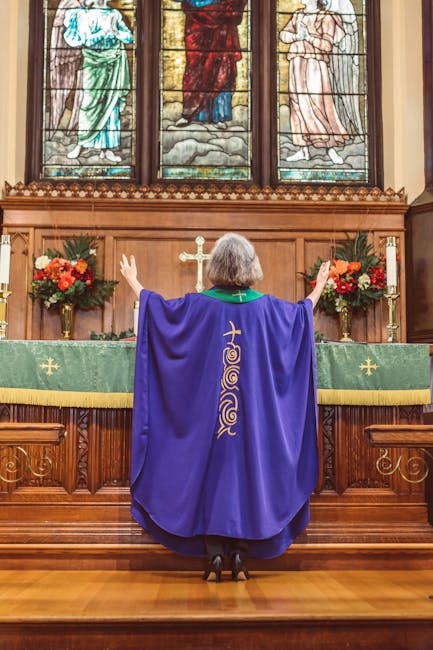Reverend, Reverend, Please Come Quick: A Deep Dive into Urgent Pastoral Care
The phrase “Reverend, Reverend, please come quick” evokes a sense of urgency, a desperate plea for spiritual and emotional support in a time of crisis. This phrase, while seemingly simple, encapsulates a wide range of situations demanding immediate pastoral intervention. This article delves into the various contexts in which such a call might arise, exploring the multifaceted roles of a pastor or reverend in providing timely and effective care.

The Spectrum of Urgency: When Immediate Pastoral Care is Crucial
The need for immediate pastoral care transcends simple comfort. It often involves situations marked by profound distress, trauma, or life-altering events. These can include:
- Medical Emergencies: A life-threatening illness, a sudden accident, or the impending death of a loved one necessitates immediate spiritual guidance and support for both the patient and their family.
- Emotional Crises: Suicidal ideation, severe anxiety attacks, or debilitating depression require the pastor’s presence to offer hope, comfort, and a lifeline to professional mental health services.
- Family Conflicts and Disputes: Deep-seated family conflicts, especially those involving abuse or estrangement, often require a pastor’s mediation and guidance to help repair fractured relationships.
- Natural Disasters and Traumatic Events: In the aftermath of natural disasters, accidents, or acts of violence, a pastor’s presence offers solace, community, and spiritual resilience to those affected.
- Sudden Loss and Grief: The death of a loved one, particularly unexpected deaths, leaves individuals grappling with profound grief. A pastor’s support during this time is crucial in offering comfort, spiritual solace, and guidance through the mourning process.
- Spiritual Struggles: Individuals facing deep spiritual doubt, crises of faith, or wrestling with their beliefs might reach out in urgent need of pastoral counsel and guidance.
The Pastor’s Role: Beyond Consolation
The role of a pastor in these urgent situations extends far beyond offering simple consolation. It requires:

- Active Listening and Empathy: Creating a safe and non-judgmental space for individuals to express their emotions and concerns is paramount.
- Spiritual Guidance and Support: Offering comfort, hope, and reassurance through prayer, scripture, and theological reflection.
- Practical Assistance: Connecting individuals with necessary resources, such as medical care, counseling services, financial aid, or community support programs.
- Crisis Intervention: In situations involving suicidal ideation or severe emotional distress, the pastor may need to coordinate with mental health professionals or emergency services.
- Community Building: Facilitating community support and encouraging the involvement of church members in providing practical assistance and emotional support.
- Advocacy and Mediation: Acting as an advocate for individuals in need and mediating conflicts within families or communities.
Preparing for the Urgent Call: Training and Resources
Responding effectively to urgent calls for pastoral care demands training and resources. Pastors need:
- Crisis Intervention Training: Understanding techniques for assessing and managing crises, including suicide prevention and intervention.
- Trauma-Informed Care Training: Learning how to support individuals who have experienced trauma, while avoiding re-traumatization.
- Grief Counseling Skills: Developing expertise in guiding individuals through the grieving process.
- Knowledge of Community Resources: Building a network of contacts within the community, including mental health professionals, social workers, and emergency services.
- Self-Care Strategies: Prioritizing personal well-being and developing coping mechanisms to manage the emotional toll of pastoral ministry.
The Importance of Accessibility and Availability
In the face of urgent need, accessibility and availability are paramount. Pastors should strive to:

- Establish clear communication channels: Providing multiple ways for individuals to contact them, including phone numbers, email addresses, and a designated contact person in case of unavailability.
- Develop an on-call system: Establishing a system for responding to urgent calls outside of regular working hours.
- Collaborate with other faith leaders: Working in conjunction with other clergy or religious leaders to share responsibilities and provide broader coverage.
Conclusion: Answering the Call to Serve
The plea “Reverend, Reverend, please come quick” represents a profound call for pastoral care in times of crisis. Responding effectively requires a holistic approach, combining spiritual guidance, practical assistance, and crisis intervention skills. By prioritizing training, accessibility, and collaboration, pastors can ensure that they are prepared to answer this urgent call to serve and provide compassionate care to those who need it most. The impact of a timely and effective response can be transformative, offering hope, healing, and support during life’s most challenging moments.
It is crucial to remember that pastors are not expected to be all-knowing or all-powerful. They are fellow humans offering spiritual guidance and support, often in partnership with professional helpers. Seeking help when needed, both for oneself and for the parishioners, is a sign of strength, not weakness.

